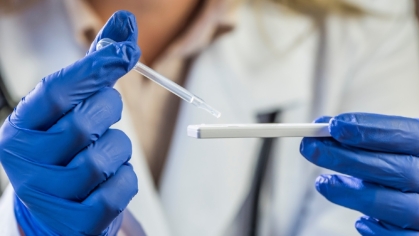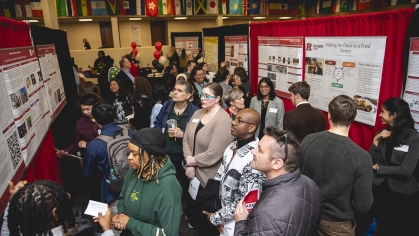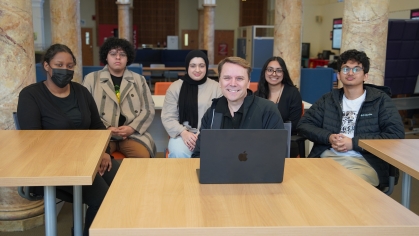Student’s Research Could Have an Impact In Saving Lives and the Planet
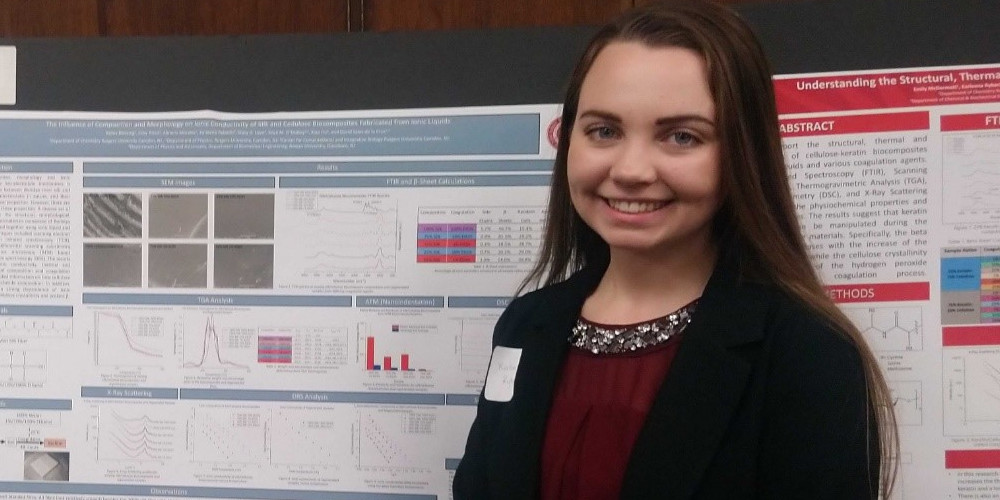
Karleena Rybacki at Thermal Analysis Forum Delaware Valley Symposium
Karleena Rybacki chose Rutgers University–Camden to pursue a degree in the sciences. However, it wasn’t until she took advantage of Rutgers–Camden’s commitment for undergraduate students to conduct original research alongside faculty mentors that she realized her career potential as a researcher.
The Rutgers‒Camden senior is conducting research on biomaterials that could be used in things like human and animal tissue engineering, filtering heavy metals from the environment, and manufacturing natural-based electrolyte batteries.
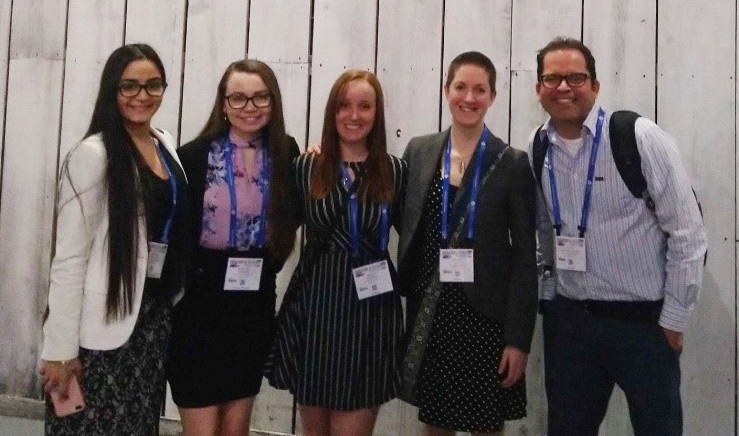
Rybacki, second from left, at the American Chemical Society 2019 National Meeting and Expo in Orlando
In Rybacki’s research, she conducts computational work analyzing the intermolecular interactions and the morphological properties of the polysaccharide cellulose.
“I am using molecular dynamic simulations to model the polysaccharide on the atomic scale,” Rybacki explains. “This can help to give insight into the morphology of the system under different conditions, to better understand its role and functions in biomaterial research.”
“I love working alongside fellow undergraduates, and master’s- and Ph.D.-level students, as we are able to learn and teach each other new things in the world of research,” says the resident of Atco, who is graduating in May with a degree in computational and integrative biology.
Beginning in the summer after her first year at Rutgers‒Camden, Rybacki started working in biomaterials research with David Salas-de la Cruz in the Research Experience for Undergraduates Program.
Through a National Science Foundation grant and the Rutgers Startup Lab Fund, Rybacki has been conducting research under the direction of Salas-de la Cruz and in collaboration with Guillaume Lamoureux, both associate professors of chemistry at Rutgers University–Camden.
Rybacki’s research has continued uninterrupted through the pandemic. Since Rybacki mainly conducts computational research, she has been running and analyzing molecular dynamic simulations of biomaterials at her computer in her home.
She developed skills in presenting her research at regional and national conferences including the Council on Undergraduate Research Symposium in Alexandria, Va., Thermal Analysis Forum of the Delaware Valley in Philadelphia, and the American Chemical Society’s 2019 National Meeting and Expo in Orlando. Attending and making presentations at conferences opened doors to networking and educational opportunities such as learning about projects by researchers across the globe.
In her applications to Ph.D. programs in biomedical engineering, she proudly mentions her extensive research experience and that she is a co-author of scientific papers published in the International Journal of Biological Macromolecules, International Journal of Molecular Sciences, and Polymer International.
Rybacki is also active in campus activities, including serving as the president of Omicron Delta Kappa Scarlet Circle at Rutgers–Camden, a national leadership honor society. She also works with the Office of Disability Services as an in-person and online lab assistant, and as a transcriptionist for online lecture videos.
“I am eternally grateful for the opportunity I have had to conduct research as an undergraduate student,” Rybacki says. “My research experience has prepared me for graduate school and a career by setting a solid foundation for a future in research.”
